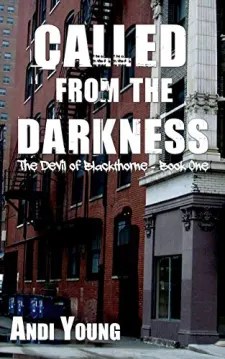
Max B. Sternberg is a Christian author who learned firsthand the risks a new author must take to get his or her work out there. Read about how he used social media groups to network and market his debut novel.
1. Tell me briefly about your latest book – what is it about and what motivated you to write it?
My latest book is my first book! Haha! It is called ‘The Rhise of Light’ and is the first book in the Darkness Overcome series. It is about a fantasy world that is on the brink of destruction from a plague of undead hordes. The main character, Leon, is called by a mysterious being to be a ‘Judge’ (or in non biblical terms, a hero). He, however, is going through his own personal troubles as well at the time. Along his journey he meets different people who join him, and they all learn about the being ‘Adonai’ and how that forgotten God can help each of them grow. There is action, humor, mystery and intrigue. It also deals with scriptural truth, and Old and New Testament themes that aren’t sugarcoated. It’s definitely not a hyper-grace message, more like punching evil in the face.
Which is one of the reasons I wanted to write the book series. There were lots of reasons, and first and foremost is because the more I started to write it the more I was convinced that this was the purpose God had called me to have. I wanted to challenge the secular fantasy landscape with a Christian series that was more thought provoking. You see a lot of ‘skin and sin’ series now in mainstream media and streaming which to me does nothing to add to a story. You can have great fantasy without those things! So this was my answer to combat that.
2. How have your sales been?
Being the first book I have no way to compare any prior works. However, I think it has gone exceptionally well since release on June 1, 2021. The book has 11 reviews on Amazon and 9 reviews on Goodreads. They average is 4.5 and higher. I am overwhelmed and humbled by the positive response! Hopefully the book sales spike and interest is gained as people review and talk about the book.
3. You’ve chosen self-publishing. How have you liked it so far?
It’s definitely been interesting. Starting to write a book from scratch I had to do a lot of research both on how to write a book and the topics that I wanted to tackle. It’s nice that I have retained the control without an editor who doesn’t see my vision. Or a publisher that wants to censor things that I want to talk about that may be controversial hanging over my head. I kept having thoughts of the librarian in Indiana Jones and the Last Crusade. A big stamp of ‘rejected’!
It does however mean that I am responsible for everything getting done. The writing of course but also proofing, the editing (which my amazing wife helped with), the formatting, perusing the story looking for plot holes, making it look pretty, and a partridge in a pear tree! You work on a budget too. I can’t tell you how many times that I had to go online and search for something book related. Then catch myself and search again only with the words ‘for free’ at the end. Continue reading →
 Andi Young is a Christian supernatural fiction writer who is currently working on the third book in her trilogy, The Devil of Blackthorne. Find out more about her writing style and her approach to marketing her book.
Andi Young is a Christian supernatural fiction writer who is currently working on the third book in her trilogy, The Devil of Blackthorne. Find out more about her writing style and her approach to marketing her book.
 Mystery/thriller author Morgan Amos has learned many things – both good and bad – during her self-publishing journey. Find out the one mistake she made starting out that can be key to a book’s success or failure.
Mystery/thriller author Morgan Amos has learned many things – both good and bad – during her self-publishing journey. Find out the one mistake she made starting out that can be key to a book’s success or failure.






You must be logged in to post a comment.